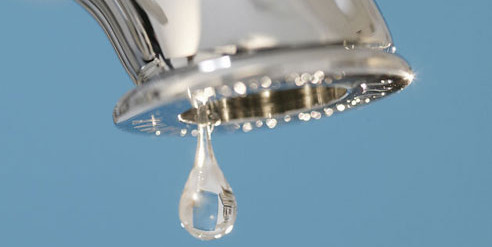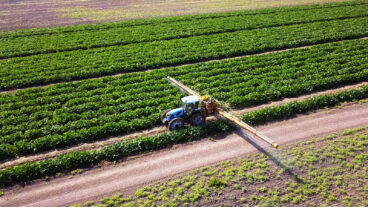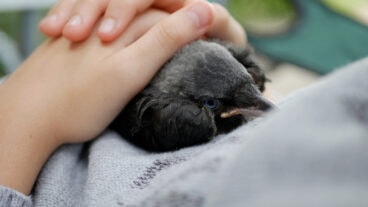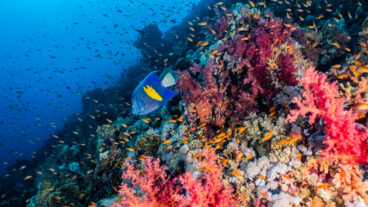An Israeli company may save up to 30 percent of the 88 billion liters of water lost to pinhole leaks in pipes all over the world, every day.

Most kids know that some little pigs ate roast beef, some stayed home and some had none. Today, some new little pigs from Israel are going out to fix pipes – tackling a billion dollar problem in the world’s water, gas and oil industry.
Curapipe, on Israel’s southern coast in Ashkelon, has a new solution that can detect and repair a problem that hides below the radar of the water and gas industries. Tiny pinhole, almost undetectable leaks emit water, oil and natural gas, costing the taxpayer money and causing unnecessary greenhouse gas emissions to enter our atmosphere. Peter Paz, CEO of Curatech tells ISRAEL21c that Curapipe “has a prototype and has proven its concept.”
Water is energy, yet the background leakage in city water pipes is so extensive that the World Bank estimates that about 88 billion liters of water is lost through urban pipes every day – in both rich countries like America and poorer ones where every drop counts.
Rather than overhaul existing infrastructure to replace new pipes, water management bodies accept this as unavoidable loss, and deal with tiny cracks in the pipes by reducing water pressure. At some point, however, this approach won’t work anymore, and expensive repairs will need to be done. Curapipe’s cost-effective solution can seal leaks fast, with little inconvenience to the customer.
The company has developed a solution based on an existing method to clean water mains: Small spongy objects referred to as ‘pigs.’ Water maintenance teams suspend the water supply for a couple of hours while the ‘pig’ is pushed through the system using water pressure. As the pigs are propelled through the pipes they remove scale and other types of unwanted buildup. The pigs can do their work in pipes made of lead, cast iron and even concrete.
Piggybacking on the pigs
Curapipe has found a way to “piggyback” on this system. It has developed a device that employs two pigs with a sealant material held between them. Pushed through the water pipes in the normal way, when the pigs encounter a crack or a leak, a composite material is squirted out to fill it in. The material then hardens in place. Once the pipe has been flushed with water to clean it, it returns to normal usage.
Paz featured his company’s technology at Israel’s bi-annual water conference WATEC in November in Tel Aviv, where some 20,000 visitors from around the world came to Israel to find solutions and forge partnerships to save water and improve its quality.
Curapipe is based in the ATI technology incubator, and Paz tells ISRAEL21c that with funding mainly from the Office of the Chief Scientist in Israel, the company is looking for a $2 million investment to take their little pigs to market. The pigs will be ready for action in mid-2010 and by 2011 they should be on the market in the US and other countries.
After water comes gas
Paz explains that the company is waiting for the seal of approval from regulatory bodies and health officials attesting that the Curapipe sealant does not affect the quality of drinking water. Rough estimates are that 20 to 30 percent of the water lost to leaks can be saved via the new technology.
Founded in 2007, Curapipe employs a staff of seven, and after dealing with the water crisis the company hopes to be able to solve another disturbing problem, this time in natural gas mains. Natural gas, made primarily of methane, can be a potent greenhouse gas, more potent than its carbon dioxide equivalent. In fact, it’s about 20 times more damaging to the environment than carbon dioxide spewed from vehicles. Odorless and colorless, natural gas mains are emitting methane. And solutions are needed badly.
“Natural gas – this is one of the big issues confronting all of us around the globe,” Paz relates. Transported via gas lines it “cannot be detected by smell or visually… Basically Curapipe could reduce the levels of methane leaks,” he says.
Curapipe is now working with the Eilat Ashkelon Pipeline Company, Israel’s major oil pipeline company, to test the pigs in both water pipes and oil pipes. The solution could also prevent devastating leaks and oil spills in nature.
A solution for oil leaks will have to wait awhile, because of the “crucial situation in the water industry,” says Paz, but thanks to Curapipe’s pigs you can expect fewer neighborhood streets to be dug up in the meantime.












